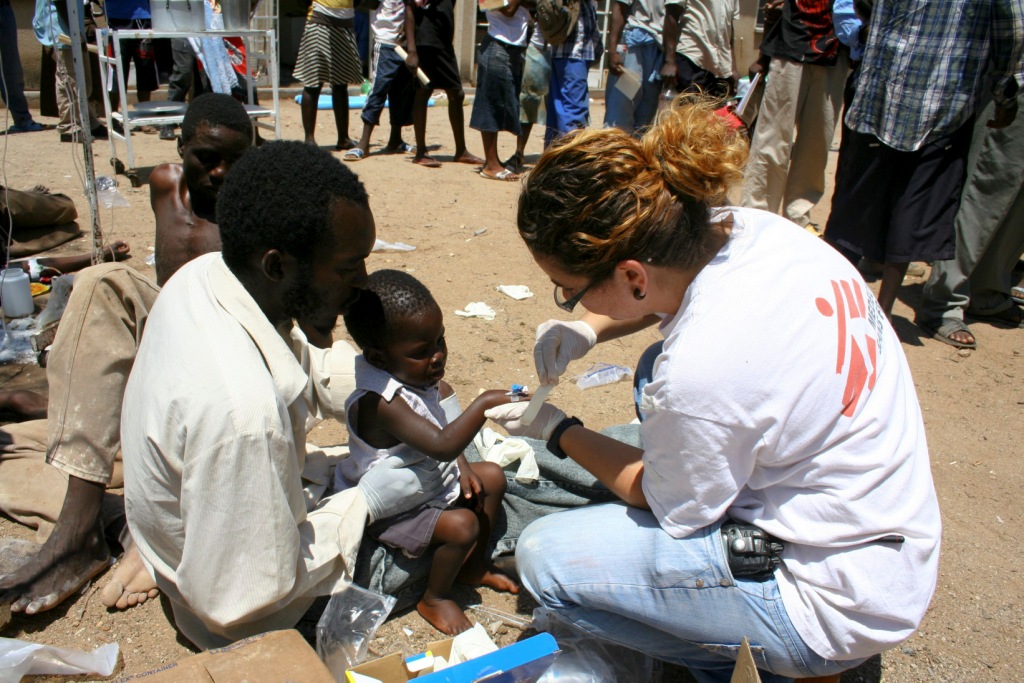Delivering Health Beyond Boundaries

By: Ronke Olowojesiku
Like many children, young Bernard Kouchner embarked on great adventures through the medium of books. His exploits took him to places unimaginable and often better than the world around him. Many years later, as a physician just beginning a career in healthcare, he witnessed atrocities that no fiction could create. The young boy who traveled to the fantastic worlds created by Alexandre Dumas and Fenimore Cooper later became the co-founder of one of the top NGOs in the world: Médecins Sans Frontières (MSF), better known in the United States as Doctors Without Borders.
In 1967, the West African country of Nigeria found itself in the midst of civil war. The impetus for this conflict was the creation of Biafra, a secessionist state whose formation in the southeast of the newly decolonized nation was sparked by economic, ethnic, and religious tensions. During this war, known globally as the Biafra War, inhabitants of the secessionist region were left with minimal resources. A military blockade reduced civilians to mere skin and bones and disease soon became rampant. French doctors in the region strove to counteract the deleterious health effects begot by this conflict. In the wake of the terrible calamity of civil war came MSF, with its mission of providing emergency aid to people living in conflict, disaster, or epidemic zones. The international organization was founded in Paris, France in 1971 by a group of French physicians including Kouchner, and currently supports thousands upon thousands of individuals working on projects in over 60 countries, with about 3,000 international volunteers traveling each year to assist affected populations. MSF’s central beliefs are simple, yet powerful: all individuals, regardless of race, nationality, creed, religion, or political affiliation, have the right to healthcare. In other words, the need for and right to quality medical treatment surpasses any national boundary.
MSF has been denounced in the past as a lone crusader unwilling to collaborate with similar organizations to address aid in emergency regions. Additionally, many critics take issue with the NGO’s close relationship with the press and their at-times idealized representation of doctors in the field. While these censures may not be unfounded, MSF is without doubt an organization undertaking tremendous projects against extraordinary odds. In the words of one physician, “what we do is a tiny drop in a sea of oceans”. The work is not easy; the conditions in which these doctors work are often extremely frustrating. Limited resources may transform what is a minor illness in the United States or Europe into a serious ailment in crisis areas. In spite of these seemingly hopeless conditions, every year, MSF continues to send more and more doctors to provide aid in these areas. The motivation, as another MSF physician puts it, is addressing “the nonsense of not doing something that needs to be done”. How can it be that a child born in Afghanistan has a one in ten chance of dying before the age of one, while a child born a few seas over in France has a less than one in one-hundred chance? Clearly, some action must be taken, and professionals working for organizations like MSF are doing just that.
Individuals interested in working for MSF as a healthcare professional should have at least two years of experience in their chosen field and must be able to serve for a minimum of six months. In addition to physicians, MSF seeks professionals such as registered nurses, midwives, mental health care providers, and water and sanitation experts. Though the program is not open to medical students, there are opportunities for involvement prior to obtaining a medical degree. Several campuses, including UGA’s, have student organizations that raise money for many of the global issues addressed by MSF. Regardless of background or interests, there are many ways one can help improve global health. Recognition of our common humanity and willingness to stretch across borders and lend a helping hand are key to improving health on a global scale.
It is no secret that the countries suffering the most economically are also those most burdened by disease. Just as illness makes no distinction between man-made boundaries, neither should healthcare. In order to address the many problems faced by global society as a whole, health situations must be improved in every corner of the world. Organizations like MSF serve as examples of how, regardless of the borders that may separate us, we can come together to combat many of the health issues found internationally. Through this action, we can bring life to the hopes and dreams of those living in nightmarish situations, and move one step closer to the ideal world that in the past has seemed to exist only in fiction.
